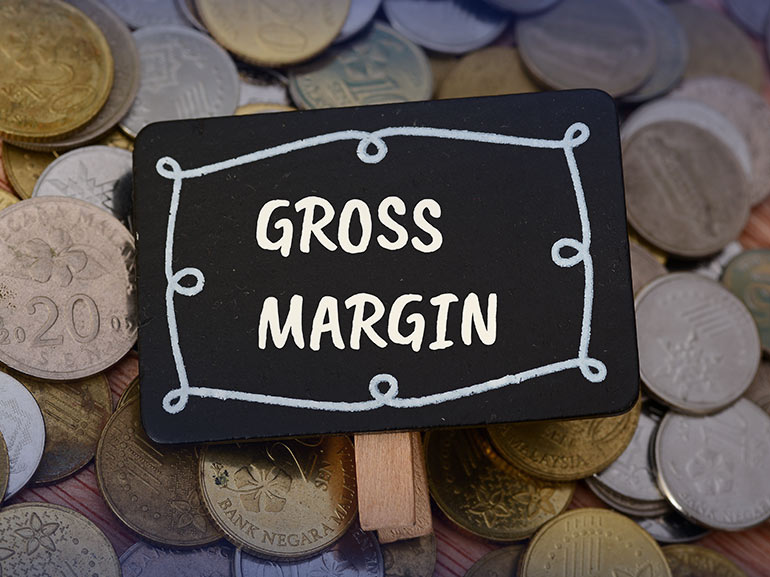TSMC Share Price Guide: How to Trade TSM Share CFDs
Date Modified: 12/10/2025
In the semiconductor stock sector, the Taiwan Semiconductor Manufacturing Company, most commonly known as TSMC, is a Taiwanese company that supplies chips to big tech giants worldwide.
In this trading guide, we'll examine TSMC business, its strengths and weaknesses, what determines the stock price, as well as how to use Contract For Difference (CFD) trading to trade on the short-term share price movements of TSMC (TSM).

TL;DR
- Established in 1987, Taiwan Semiconductor Manufacturing Company (TSMC) is a semiconductor foundry headquartered in Taiwan focusing on the fabrication of cutting-edge chips.
- TSMC's Initial Public Offering (IPO) on the Taiwan Stock Exchange (TWSE) in 1994.
- TSMC's share price can be influenced by various factors such as technological advancements, geopolitical tensions, competition, and TSMC-specific factors.
- Active traders seeking to capture short-term TSMC's share price movements can leverage trading shares with Contracts For Difference (CFDs).
- They can implement various CFD share trading strategies, such as trading economic data releases, trading breakouts, trading trends, and trading ranges.
Understanding Taiwan Semiconductor Manufacturing Company (TSMC)
What Is TSMC?
TSMC specialises solely in manufacturing semiconductors for other companies, rather than designing or selling its own chips, which foster trust and collaboration, as the company doesn't compete with its various clients.
TSMC-produced chips are used in a wide range of applications, powering everything from high-performance computing systems to everyday consumer electronics like smartphones and cars, catering to a diverse global customer base.
What Are Some of TSMC's Leading Customers?
In 2023, TSMC demonstrated its global reach by serving 538 customers worldwide through a portfolio of 11,895 manufactured products using more than 285 various process technologies.
As of September 2024, TSMC continues to solidify its position as a leading semiconductor foundry, boasting a clientele that includes some of the most prominent technology companies globally:
- Apple (AAPL)
- NVIDIA (NVDA)
- AMD (AMD)
- Qualcomm (QCOM)
- Broadcom (AVGO)
- Intel (INTC)
- Sony (SONY)
- Mediatek
What Are Some of TSMC's Competitors?
In 2024, TSMC faces competition from various semiconductor foundry industry players that can be classified into three categories such as Integrated Device Manufacturers, Systems Companies, and Fabless Companies.
Some of the major competitors in 2024 in these categories include:
- Samsung Electronics
- ASML Holding NV (ASML.AS)
- SK Hynix Inc
- Applied Materials Inc. (AMAT)
- GlobalFoundries
- Micron (MU)
- Toshiba Semiconductor
- IBM (IBM)
- United Test and Assembly Center (UTS)
- Semiconductor Manufacturing International Corporation (SMIC)
Drivers of TSMC Share Price
- Competition: If TSMC's competitors achieve significant breakthroughs in technology, manufacturing capacity, or market share, it could erode TSMC's dominance, potentially leading to a decline in its stock price due to investor concerns about future profitability.
- Artificial Intelligence and High-Performance Computing: The increasing demand for advanced chips to power artificial intelligence (AI) and high-performance computing (HPC) applications presents significant growth opportunities for TSMC, potentially driving its share price higher as traders anticipate increased revenue and market dominance.
- Earnings: During earnings season, when TSMC releases its quarterly financial results, its share price can experience significant market volatility. This happens depending on whether the company meets, exceeds, or falls short of market expectations for share EPS, revenue, profit margins, and future guidance.
- Corporate News: News and events, such as announcements about new partnerships, acquisitions, products, clients or changes in leadership, can impact TSMC's share price. They can influence trader confidence and expectations for the company's future growth and profitability.
- Tech-War Between the United States and China: The escalating tech war between the United States and China, particularly surrounding semiconductor technology and supply chains, can significantly impact TSMC's share price due to potential trade restrictions, export controls, chip development capabilities, and shifting geopolitical alliances.
A History of TSMC's Stock Price
Between 1997 and 1999, during the dot-com boom, the stock soared by 341.27%. However, the subsequent bursting of the tech bubble led to a steep decline of 70.59% between 2000 and 2002.
From 2003 onwards, the stock embarked on a strong bullish trend, amassing a staggering 3,206.23% gain by the end of September 2024. This upward trajectory was punctuated by a handful of down years: 2004 (-5.41%), 2007 (-8.42%), 2008 (-20.28%), 2018 (-6.91%), and 2022 (-38.08%).
TSMC also experienced strong years of growth, notably in 1999 (+290.13%), 2003 (+56.87%), 2009 (+45.52%), 2019 (+57.41%), 2020 (+87.68%), and, as of September 2024, a 68% gain in 2024.
Keep in mind that past performance does not guarantee future outcomes.
Potential Benefits and Risks of Trading TSMC Stock
Here are some reasons traders might trade TSMC stock:
- TSMC's unique position as a pure-play foundry fosters innovation and strong tech partnerships.
- The surge in generative AI, machine learning, and high cloud computing solutions has triggered a boom in demand for semiconductor products, directly benefiting TSMC's business.
- TSMC's foundry services have been instrumental in driving technological advancements across a wide range of products, especially when it comes to smaller process nodes and energy-efficient computing solutions, making it an appealing prospect for traders looking to capitalise on the growth of cutting-edge technology.
- TSMC's extensive customer base, which includes tech industry giants, showcases its indispensable role in the technology sector.
- TSMC's chips are used in diverse end-market applications and serve a vast global clientele, minimising the impact of demand fluctuations and enabling potential high-capacity utilisation and consistent profitability, which allows the firm to generate returns to finance future investment projects.
- TSMC's commitment to sustainable and growing cash dividends since 2004 makes it an attractive option for income-seeking traders.
Here are some risks traders should consider when trading TSMC shares:
- High costs for TSMC's advanced chips and a high foreign ownership ratio could raise concerns about the company's future growth potential and profitability over time.
- The semiconductor industry's heavy reliance on a complex global supply chain exposes it to geopolitical risks, which can disrupt production and negatively impact TSMC's performance.
- While TSMC enjoys a leading position in the semiconductor foundry industry, the increasing competition poses a risk for the company, both from traditional actors and new entrants. This heightened competition could lead to price wars, margin erosion, and a potential loss of market share for TSMC.
What Are CFDs on TSMC's Shares?
CFDs, or Contracts For Difference, on TSMC, allow traders to use speculative trading on the company's share price without owning actual shares or having shareholder rights. CFDs on shares are financial derivatives that settle the price difference between opening and closing CFD positions, enabling traders to trade both rising and falling markets through long and short positions respectively.While CFDs offer leverage, which can magnify profits, it also amplifies losses, making them high-risk instruments and you should fully understand trading basics and what CFD trading is.
So before diving into TSMC share CFD trading, you should understand what trading is and why you should consider trading TSMC share price with CFDs.
How to Trade TSMC (TSM) with CFDs on Plus500
Once you have a solid foundation, research the various factors that can impact TSMC's share price and create a well-defined trading plan outlining your entry and exit points and strategies, as well as understanding what risk management is and how to use it in your trading.
Next, open a CFD trading account with Plus500, fund it with the capital you're comfortable trading with, and familiarise yourself with the various ways you can trade with Plus500's platform and trading tools.
Finally, execute your CFD trade on TSMC shares based on your trading strategy and risk tolerance. Consistently monitor your positions and make adjustments as needed based on market conditions and your trading plan.
Conclusion
Trading TSMC share CFDs offers the potential for gains due to its strong market position and the growing demand for semiconductors. However, traders should also consider the potential risks and limits associated with TSMC trading, particularly those related to geopolitical tensions, competition, and industry cyclicality.
You can also have a look at other opportunities in the semiconductor industry:
- What Is Nvidia and How to Trade It
- AMD Stock Guide
- How to Trade ARM Stock: Arm Holdings Trading Guide
If you want to apply your insights on TSMC's shares and actively trade its share price, you may consider trading CFDs on TSMC with Plus500.
FAQs
TSMC's shares were first listed on the Taiwan Stock Exchange (TWSE) in 1994, followed by its American Depositary Shares (ADS) being listed on the New York Stock Exchange (NYSE) in 1997.
For the TSMC's shares listed on Wall Street, they can be traded during the core trading session that runs between 9:30 AM and 4:00 PM ET during weekdays. However, traders might have the opportunity to engage in trading during extended trading hours on certain financial instruments and trading hours on TSMC CFDs may differ depending on the CFD provider.
TSMC intends to provide its shareholders with a consistent and reliable quarterly cash dividend, aiming to distribute an amount each year that is at least equal to the previous year's payout. As of the second quarter of 2024, the company has approved a cash dividend of NT$4.00 per share.
The main differences between trading vs investing in TSMC stocks are about timeframes, focus, goals, risk appetite and trading methodologies. Investing in TSMC stock involves buying and holding shares with the expectation of long-term price appreciation (position trading), while trading TSMC shares with CFDs focuses on short-term price movements through popular trading strategies such as day trading and swing trading.
You may analyse TSMC's share price by identifying technical triggers and learning to master technical analysis. You can also study fundamental factors and stay informed about market news and insights, as well as company announcements. You might also want to consider the psychological aspects of trading to understand how emotional, psychological and cognitive biases can influence trader decisions about TSMC's shares' direction.
Related News & Market Insights
Get more from Plus500
Expand your knowledge
Learn insights through informative videos, webinars, articles, and guides with our comprehensive Trading Academy.
Explore our +Insights
Discover what’s trending in and outside of Plus500.
Stay up-to-date
Never miss a beat with the latest News & Markets Insights on major market events.


